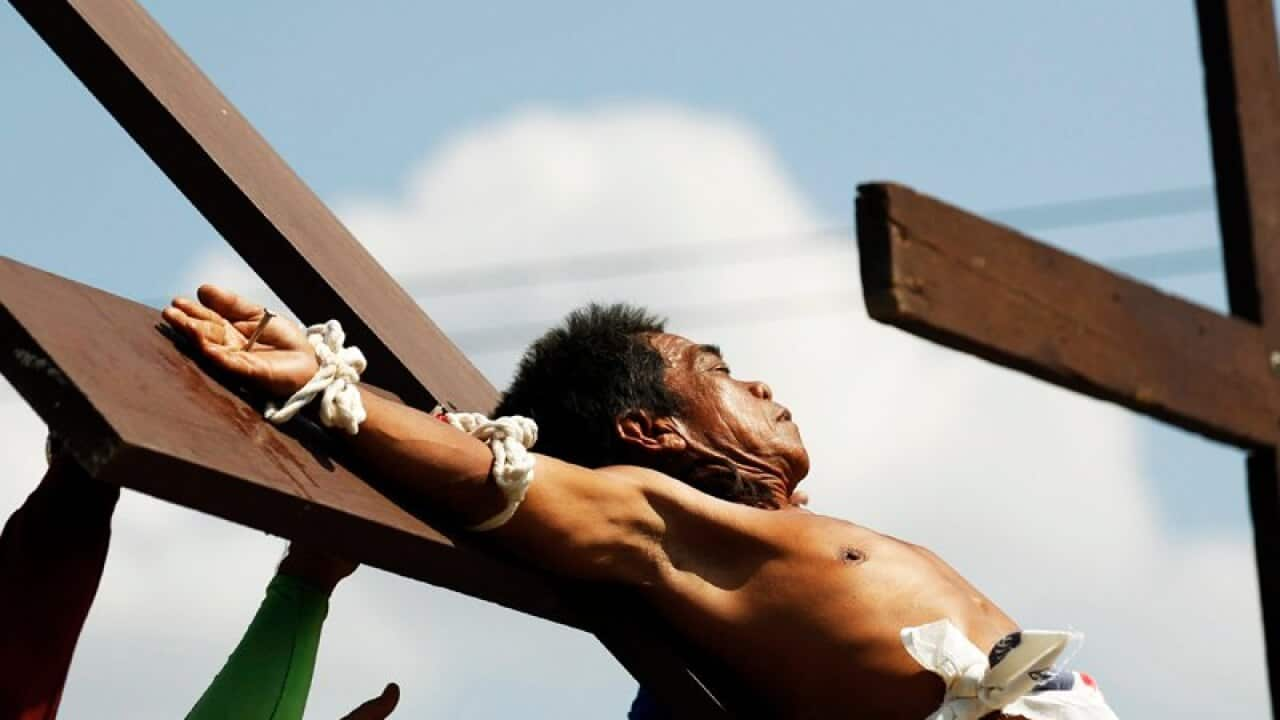In Pampanga, north of Manila, dozens of barefoot devotees wearing red robes have marched along the streets, whipping themselves and slashing their backs with razor blades as they take part in the rituals to atone for their sins.
Other devotees willingly volunteer themselves to be nailed to the cross, reenacting Jesus Christ’s crucifixion.
For many people practicing it, they believe that if they commit self-punishment, they would be forgiven for their sins, be cured of their illness, or get more blessings.
A sixteen-year-old devotee, Job Christian Ong, the youngest in his group, has volunteered this year to continue a family tradition and also for redemption of his sins.
“It is difficult yet rewarding,” he told Reuters.
"Becoming a devotee is my way of showing gratitude to God because he saves us from our sins and when we have problems, we turn to him, so sometimes we need to sacrifice ourselves for him," he added.
"We always pray for strength, [good] health for our families, and thank God for blessings," said Roger Aquino, a 59-year-old village official who was among the penitents.
"People should understand that what we do is a tradition [and they] should respect it," the village official told Reuters.
While the country’s church leaders have expressed disapproval of what it calls 'misinterpretations of faith,' many devotees still continue to practice these reenactments of the sufferings of Christ and the tradition remains popular in some parts of the Philippines.
Share
